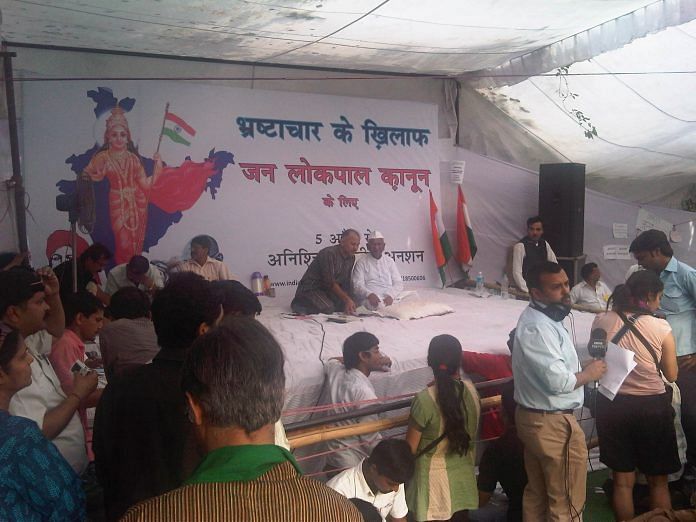Rohatgi had represented the Centre in case against delays in implementing Lokpal. He had argued things could not go ahead without an official Leader of Opposition.
New Delhi: Former Attorney General Mukul Rohatgi has been appointed as an ‘eminent jurist’ on the panel to appoint India’s Lokpal, or corruption ombudsman.
The appointment was confirmed by Chief Justice of India Dipak Misra, Prime Minister Narendra Modi and Lok Sabha Speaker Sumitra Mahajan. The panel will now finalise names to be appointed as the Lokpal.
Rohatgi’s name was submitted by Attorney General K.K. Venugopal to a bench of justices Ranjan Gogoi and R. Banumathi. At this, the bench observed: “We hope the eminent jurist is alive to the urgency of appointing a Lokpal.”
When Rohatgi was the top law officer, he had represented the Centre and defended its stand of not being able to appoint a Lokpal since there was no Leader of Opposition (LOP) as per the constitutional definition of the position (that is, since the largest opposition party, the Congress, doesn’t have the requisite number of seats, 10 per cent of the total strength of the Lok Sabha).
In April this year, the Supreme Court had urged the Centre to expedite the process of selecting the Lokpal. The top court’s directive came when the Centre submitted that a high-powered committee led by Prime Minister Narendra Modi had met on 10 April in order to recommend an eminent jurist to help in the selection of Lokpal.
When Rohatgi represented the Centre
The Lokpal Act was passed by Parliament in December 2013, and notified the following month, but it was inactive since there was no LOP since the 2014 general elections.
NGO Common Cause then filed a petition regarding the delay in appointing a Lokpal in the Supreme Court. The Centre’s entire defence to this revolved around the LOP issue.
Under the Lokpal Act, the CJI, the Prime Minister, the Speaker and the LOP are supposed to select the committee that would investigate allegations of corruption against public officials. However, since the current Lok Sabha does not have a LOP, the act needed to be amended to include the leader of the main opposition party – a non-constitutional post in the committee, Rohatgi had explained, representing the Centre.
“In the current scenario, it is impossible to constitute the Lokpal because there are more than 20 proposed amendments that need to be cleared. (Mallikarjun) Kharge is the leader of the main opposition party, but the government did not give him the status of Leader of Opposition. Unless the proposed amendment is not made, the committee cannot be formed,” he had said.
Court’s observations
In April 2017, the top court had paved the way for more transparency in the government, and observed that the Lokpal Act in its current avatar was a “workable piece of legislation”.
Dismissing the Centre’s contention on the LOP issue, the top court gave the Lokpal committee the go-ahead to appoint the rest of the members and an eminent jurist, even if there was no official LOP.
“If, at present, the LOP is not available, surely, the chairperson and the other two members of the selection committee, namely, the Speaker of the Lok Sabha and the Chief Justice of India or his nominee, may proceed to appoint an eminent jurist as a member of the selection committee under Section 4(1)(e) of the Act,” the court had said.
The bench comprising of justices Ranjan Gogoi and Navin Sinha had further noted that acts undergo amendments all the time; however, this did not mean the operation and execution of the law should be halted.
“Attempts at achieving better results in the working of any statute are a perpetual and ongoing exercise dictated by the experiences gained on the working of the act. Such attempts cannot halt the operation and execution of the law which the executive in its wisdom has already given effect to and has brought into force by resorting to the provisions of Section 1(4) of the Act.
“The Act as it stands today is an eminently workable piece of legislation and there is no justification to keep the enforcement of the Act under suspension till the amendments, as proposed, are carried out,” the bench ruled.



